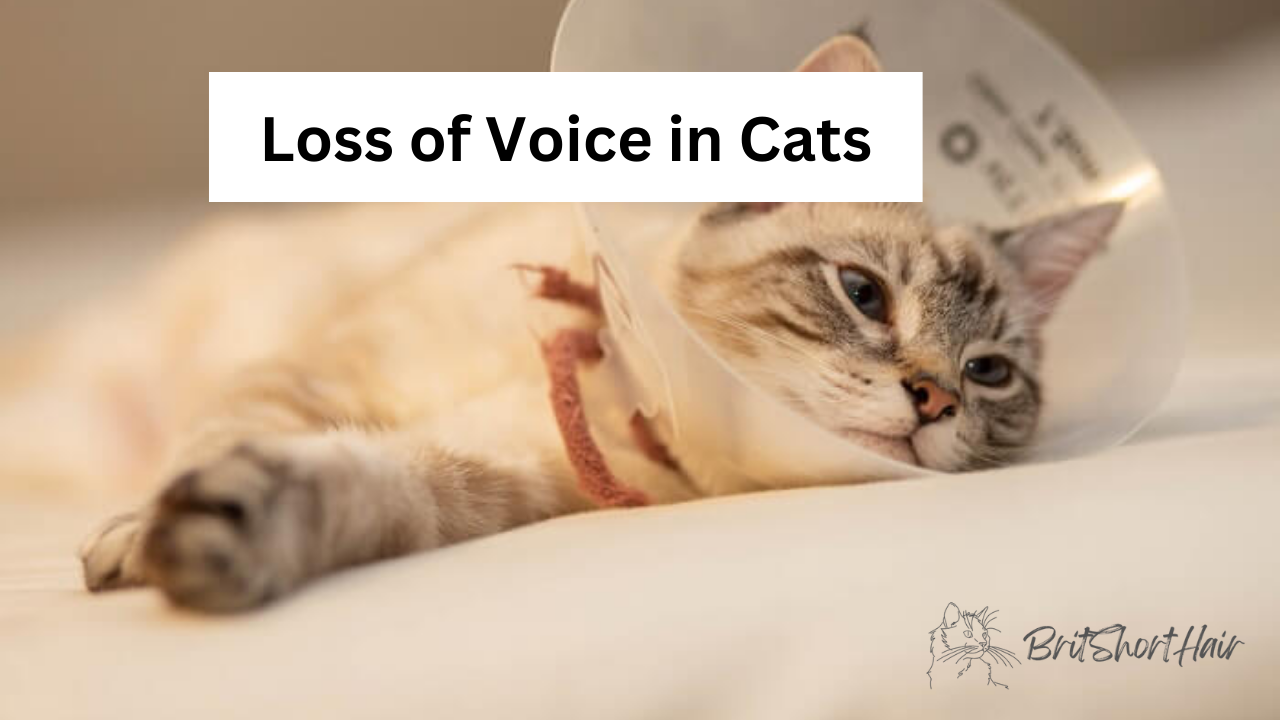Introduction
It’s concerning if your cat stops responding to your calls and meows silently. It’s hard to conceive of what it would be like if you woke up one day and your cat suddenly stopped meowing or otherwise communicating with you. Cats of any age or breed are susceptible to laryngitis, generally known as a loss of voice. This post will detail the several therapy choices available to assist your feline buddy to recover from laryngitis and get back to purring like a kitten.
Larynx in cats
The larynx, a crucial respiratory system component of cats, finds its humble abode in the throat betwixt the pharynx and the trachea. Known colloquially as the voice box, it plays a pivotal role in sound production. Akin to an orchestra, the larynx’s vocal cords, composed of two muscular bands, vibrate and produce sound as the air flows through them. Nevertheless, when swallowing food and liquids, an essential epiglottis tissue flap conveniently conceals the opening of the larynx, shunning the likelihood of respiratory tract blockage. Given that the larynx boasts multiple muscular attachments, it can bend, twist and contort to produce a gamut of sounds.

How laryngitis can affect cats?
These whiskered wonders may exhibit symptoms of various illnesses, including the notorious rhinotracheitis and calicivirus, which can ultimately lead to laryngitis. This condition, marked by inflammation of the larynx, can cause the cat to experience difficulties meowing, among other things. The plight of a feline with laryngitis is far more complex than just being unable to meow. Many viruses can manifest in the form of a cough, or nasal discharge. The symptoms can also fluctuate, increasing the complexity of the situation, as one day, the cat may seem fine, while the next, it may be noticeably unwell.
Symptoms of laryngitis/ loss of voice
- Laryngitis is a condition that causes a change in voice or hoarseness, and it is the most common ailment affecting cats. The noticeable sign of this condition is the distinct difference in your cat’s meow, which may sound breathy or raspy instead of its usual meow
- Laryngitis can be a result of irritation in the throat, which may further lead to coughing or gagging symptoms in cats. Humans who possess this condition can experience the same symptoms, which can be a dry, tickling sensation in the throat or the urge to clear their throat.
- In multiple cases, the inflammation resulting from laryngitis can lead to swelling, which can affect the cat’s ability to breathe properly. As a result, the cat may wheeze or experience breathing at irregular intervals
- One of the more alarming symptoms of laryngitis in cats is the loss of appetite or weight loss, which can be due to the discomfort or soreness encountered when swallowing the food. Additionally, the inflammation caused by laryngitis can also lead to sudden weight loss.
- Inflammation and the pain that accompanies laryngitis can cause the cat to look lethargic or weak, and it solely depends on the severity of the condition.

How to diagnose laryngitis?
Laryngitis in cats is usually diagnosed after a thorough physical examination and discussing symptoms exhibited by your cat lately and medical history with your vet. The veterinarian may use a light with a laryngoscope to look for inflammation or other irregular conditions present in the larynx during the physical examination. The veterinarian may also perform other checks as needed, such as listening to your cat’s heartbeat and lungs.
To establish a diagnosis of laryngitis and rule out other possible causes of your cat’s symptoms, your veterinarian may also discuss diagnostic tests. In order to rule out infections and other potential causes, a doctor may order radiographs (x-rays) of the chest and lungs and perform a laryngeal exam to examine the throat and lungs.
Laryngitis can be caused by different bacteria and viruses, so if the vet thinks an infection is a reason, they may suggest a culture or sensitivity test to examine the cat. This can help you know get to the root cause.
Treatment
- Try to provide your cat with a calm and quiet place to help relieve the tension and anxiety that can worsen the pet’s illness.
- Your veterinarian may recommend medicines for cough, anti-inflammatory drugs, and antibiotics for bacterial infections in order to reduce the symptoms.
- To prevent dehydration and to help calm your cat’s throat, make sure it gets enough water.
- To keep your cat healthy and strong, you should give it a balanced diet high in nutrients.
Conclusion
Ultimately, the results of untreated voice loss in cats can be devastating. You should take your cat to the vet right away if you find any signs of laryngitis. Fortunately, most occurrences of laryngitis in cats are easily detectable and treatable, and your feline companion will soon be purring like usual.
Blogs
All you have to do is click on “cats blogs” to access a wealth of high-quality blogs on cats.
by clicking “cute cats” you can look at the cutest images of cats.
How do I know if my cat has lost its voice?
If your cat loses its voice, it may not meow or meow weakly.
Can voice loss in cats be treated?
In most cases, it can be treated.

